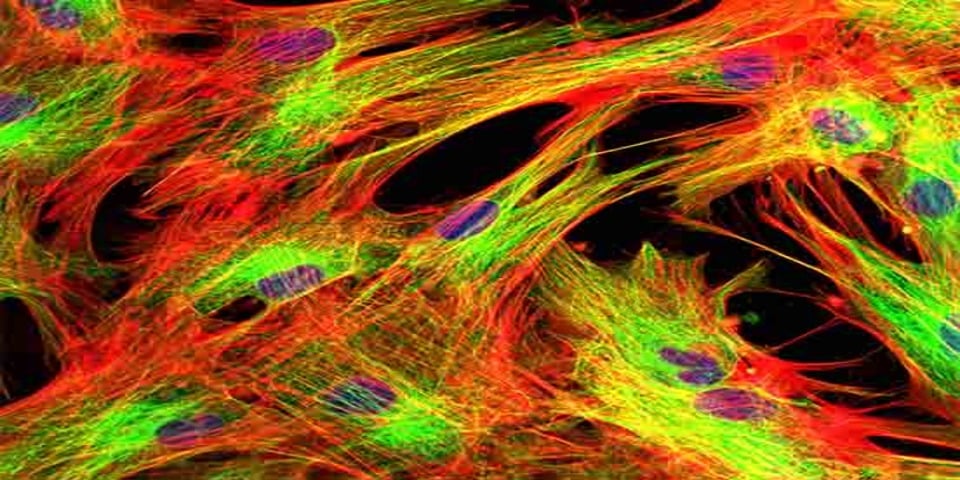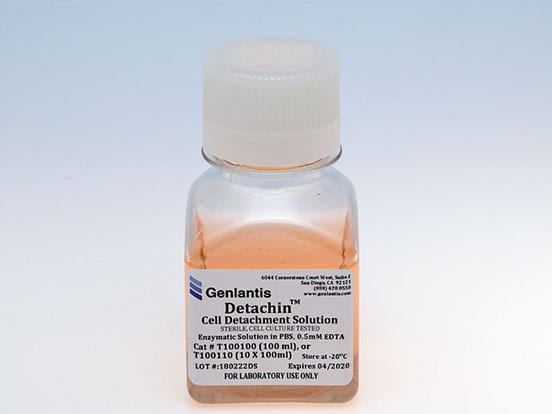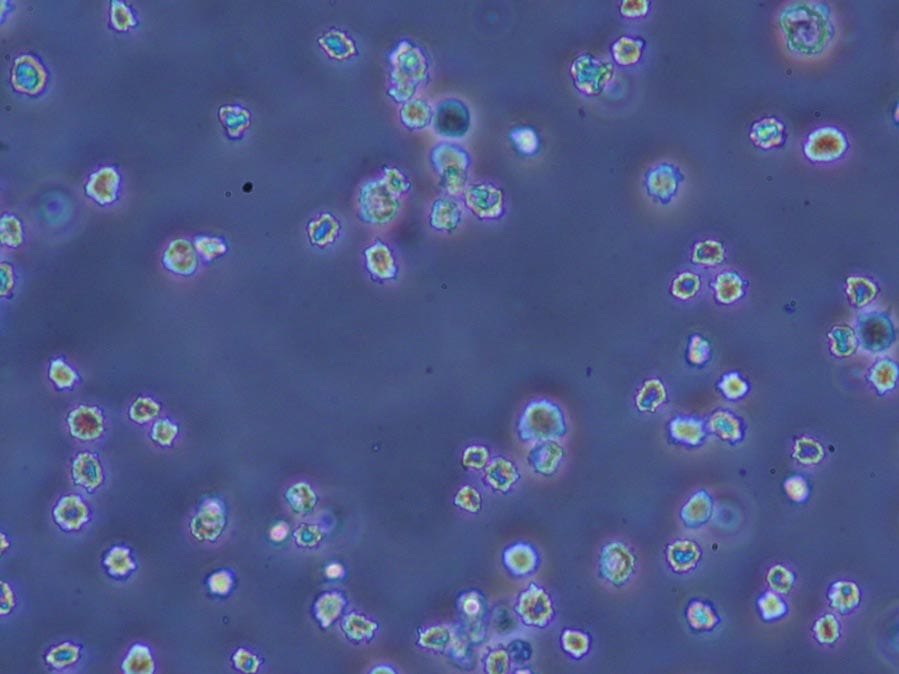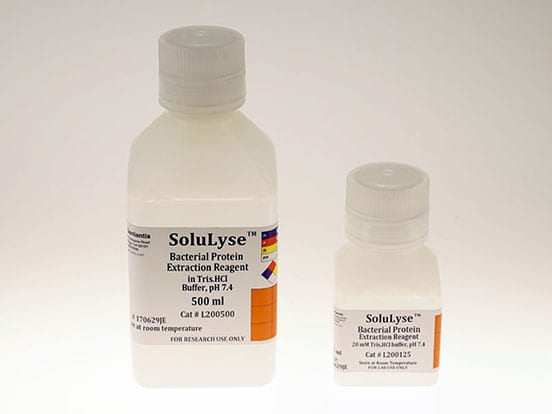In the realm of life science research, high-quality reagents serve as the backbone for groundbreaking discoveries, ensuring the integrity of experimental outcomes and propelling advancements. Recognising the importance of upgrading your basics, AMSBIO presents BioPORTER®, Detachin™, and SoluLyse™: specifically tailored to empower cell and microbial research by enhancing the efficiency, accuracy, and reproducibility of your investigations. Read on to discover how these three remarkable AMSBIO products that are proving invaluable in diverse applications, from Parkinson’s research and hypersomnia studies to eco-friendly microbial ester production.

Organoids for Health Equity! Diversifying Preclinical Research (International Women’s Day)
March 4, 2024
MHRA and FDA Approves CRISPR-based therapy for Sickle Cell Anemia
January 11, 2024BioPORTER® in Parkinson's Disease and Lewy Body Dementia Research
In 2022, a collaborative effort led by Dr. Wenjing Wang at the University of Michigan and Dr. Xiaobo Mao of Johns Hopkins University School of Medicine made strides in the development of potential therapeutics for Lewy Body Dementia and Parkinson’s disease. Focusing on the pathogenic α-synuclein (α-syn) protein, their research identified a nanobody, PFFNB2, with therapeutic potential. The team found that the nanobody PFFNB2 promoted dissociation of α-syn fibrils, resulting in inhibition of α-syn pathology in both in vitro and in vivo experiments. When examining the relationship between α-syn aggregation and PFFNB2 in mammalian cells, Dr. Wang and Dr. Mao utilised BioPORTER® Protein Delivery Reagent QuikEase Kit, for easy transduction of α-syn preformed fibrils to HEK293T cells. BioPORTER® uses biocompatible polymers to encapsulate and protect proteins during delivery, ensuring stability and activity, and paving the way for more accurate and reproducible results. The findings of Dr. Wang and Dr. Mao’s research holds significant potential to enhance the lives of individuals grappling with Lewy Body Dementia and Parkinson’s disease.
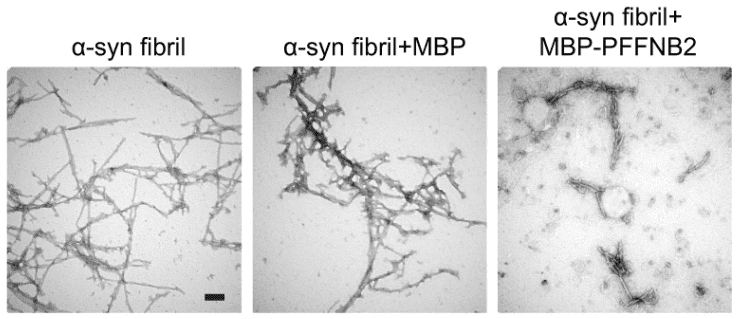
Detachin™ in Solutions for Hypersomnia
Hypersomnia is a condition characterised by excessive daytime sleepiness, severely affecting an individual’s ability to function normally in their daily lives. In a study published in February 2023, Dr. Andrew Jenkins and his research team at the University of Saint Joseph delved into the exploration of repurposing compounds to address this condition. Having previously discovered that compounds that negatively modulate the GABAA receptor can restore the balance between excitation and inhibition in the brain, which can help people with hypersomnia stay awake, the team embarked on a comprehensive exploration of 11 compounds reported to influence wakefulness and their relationship with GABAA receptor modulation. These compounds possessed a diverse range of applications from antibiotics to antimalarial and anticonvulsant agents, the effects of which were examined using conventional and microfluidic patch clamp techniques. Notably, all 11 compounds were identified as modulators of GABAA receptor activity, presenting some with promising potential in alleviating excessive sleepiness. Dr. Jenkins and his team used of Detachin™ Cell Detachment Solution from AMSBIO, during preparation of their cells for electrophysiological analysis. Cell detachment is a critical step in cell culture experiments, making Detachin™ the superior choice with its gentle and effective cell dissociation solution. Using Detachin™ ensures high cell viability and functionality, reducing the risk of altered cell behaviour due to harsh detachment methods.
SoluLyse™: Advancing Eco-Friendly Microbial Ester Production
Microbial production of short-chain esters offers eco-friendly alternatives to chemical synthesis, but small yields remain a challenge. To address this, Dr. Arul M. Varman at Arizona State University and Dr. Ryan Davis from Sandia National Laboratories sought to enhance microbial short-chain ester manufacturing. Their aim was to boost ester production efficiency by utilising esterases to directly esterify organic acids and alcohols, making the process more effective. Engineering esterases from various microorganisms into E. coli, along with genes for ethanol and lactate production, proved successful in demonstrating short-chain ester production. Their work has the potential to transform the production of short-chain esters, enabling the sustainable and cost-effective synthesis of these valuable compounds for various industrial applications. In their investigation Dr. Davis and Dr. Varman used SoluLyse™ Bacterial Protein Extraction Reagent, a potent protein extraction and cell lysis reagent from AMSBIO, designed to simplify and expedite the process of obtaining high-quality protein extracts. Its compatibility with a wide range of cell types makes SoluLyse™ a great asset in the realm of protein research, ensuring efficient cell lysis without compromising protein integrity.
Conclusion
Upgrading your basic reagents in the lab with products like BioPORTER®, Detachin™, and SoluLyse™ can lead to significant improvements in your research outcomes. These reagents offer enhanced performance and convenience, allowing you to obtain more reliable and reproducible results. By investing in high-quality reagents, you can streamline your experiments, save time and resources, and ultimately accelerate your progress towards groundbreaking discoveries. Delve deeper into our cell and molecular biology product range and discover how they can upgrade your research.
Further Reading
Butler, Y. R., Liu, Y., Kumbhar, R., Zhao, P., Gadhave, K., Wang, N., Li, Y., Mao, X., & Wang, W. (2022). α-Synuclein fibril-specific nanobody reduces prion-like α-synuclein spreading in mice. Nature Communications, 13(1). https://doi.org/10.1038/s41467-022-31787-2
Kaplan, A., Nash, A. I., Freeman, A. A. H., Lewicki, L. G., Rye, D. B., Trotti, L. M., Brandt, A. L., & Jenkins, A. (2023). Commonly used therapeutics associated with changes in arousal inhibit GABAAR activation. Biomolecules, 13(2), 365. https://doi.org/10.3390/biom13020365
Sarnaik, A. P., Shinde, S., Mhatre, A., Jansen, A., Jha, A. K., McKeown, H., Davis, R., & Varman, A. M. (2023). Unravelling the hidden power of esterases for biomanufacturing of short-chain esters. Scientific Reports, 13(1). https://doi.org/10.1038/s41598-023-37542-x
